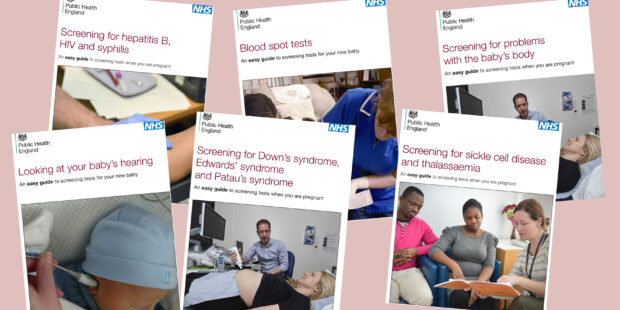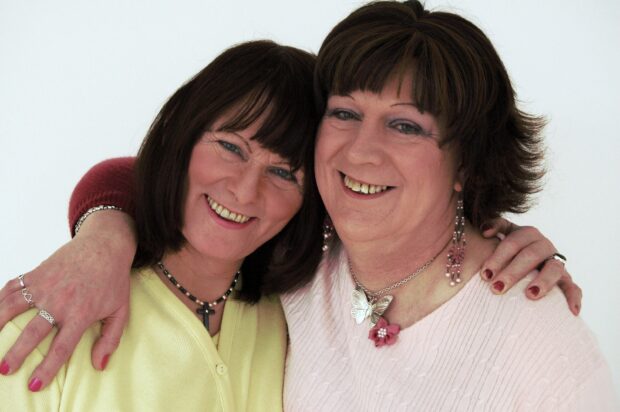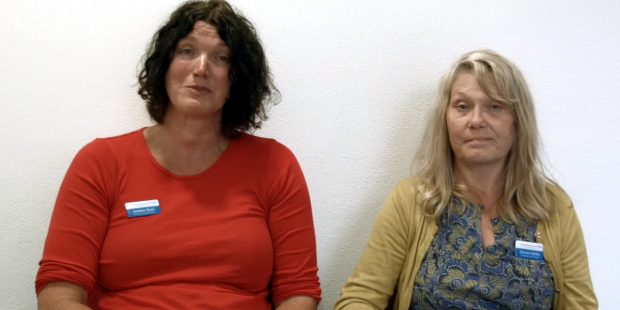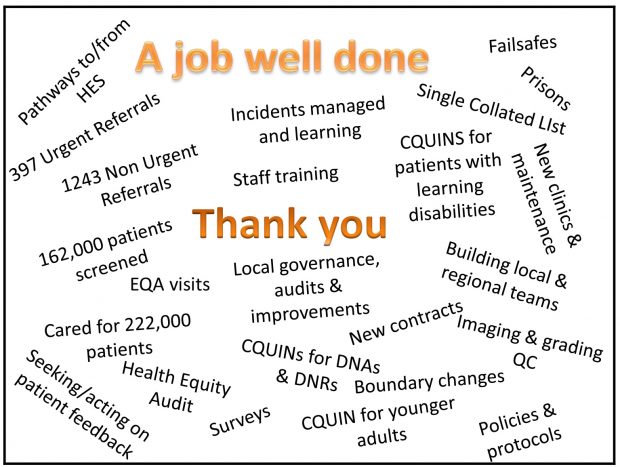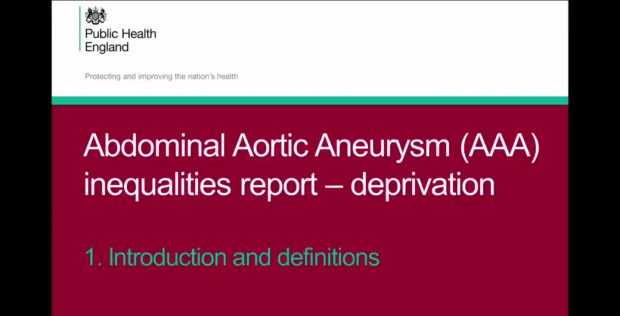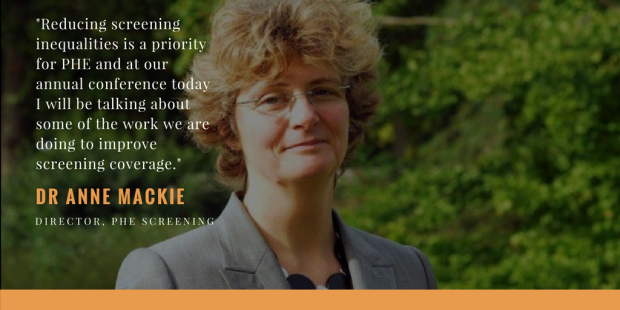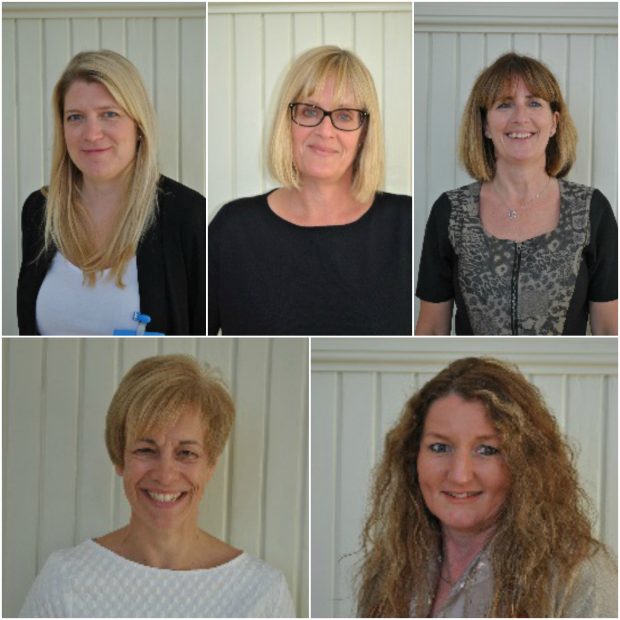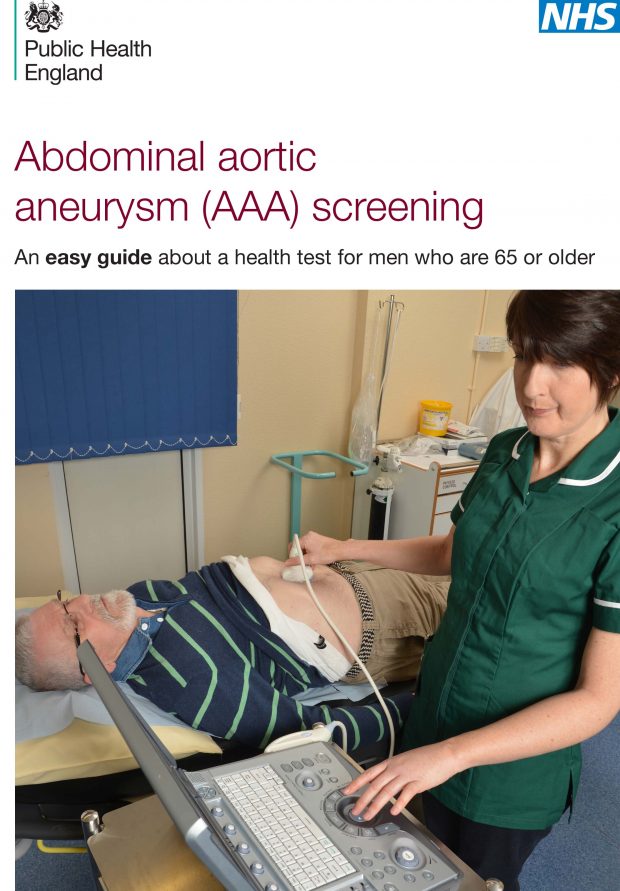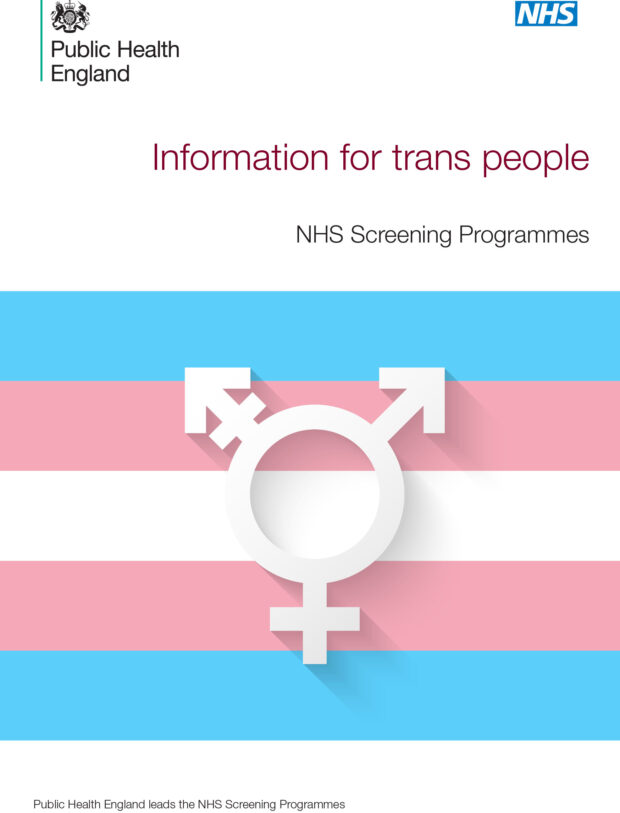...2018. If you are in London, have experience of providing information to women with learning disabilities and are willing to be interviewed, please contact Sarah Morgan. PHE Screening blog PHE...
PHE Screening's leaflet for people who are trans or non-binary has been very well received by trans communities and healthcare professionals alike.
Women with a learning disability who are eligible for breast screening are the least likely to attend, even though it can save their life.
The 6 Cumbria and North East (CANE) diabetic eye screening services work together to improve services for patients through shared learning, quarterly programme manager networking meetings and a local failsafe officer forum.
...often as they need. We will be developing another set of videos that cover the ethnic group section of the report ready for the next data release in January 2018....
...inequalities affect screening There are many people who decide not to be screened, which is entirely their choice. These people might have screening, but only if we provide better information...
The PHE inequalities strategy will aim to close the screening inequalities gap and ensure equitable access to screening to all eligible populations.
More than 40 people attended a regional diabetic eye screening (DES) networking day organised by the Midlands and East Screening QA Service (SQAS) team. Delegates included programme managers, clinicians, senior...
Today we’ve published our latest easy read information leaflet to help ensure screening is accessible to individuals with learning disabilities and low literacy levels.
We aim to make screening accessible and inclusive for all eligible populations. For people who are trans (transgender) or non-binary (any gender that is not exclusively male or female), inequalities may exist because...
